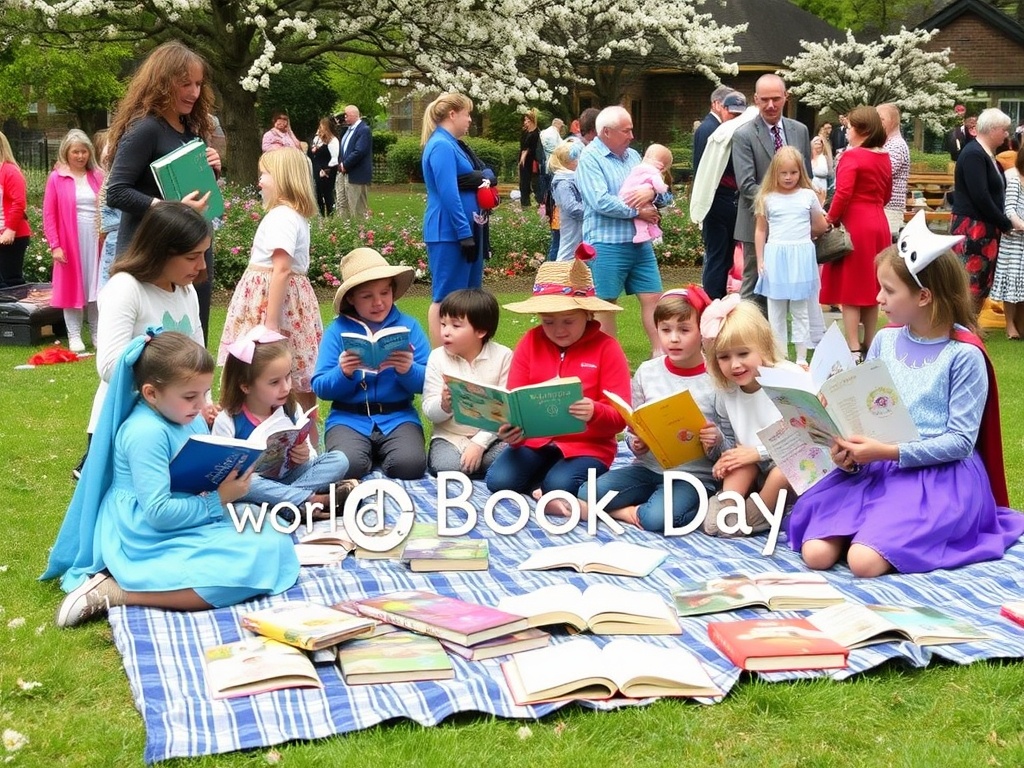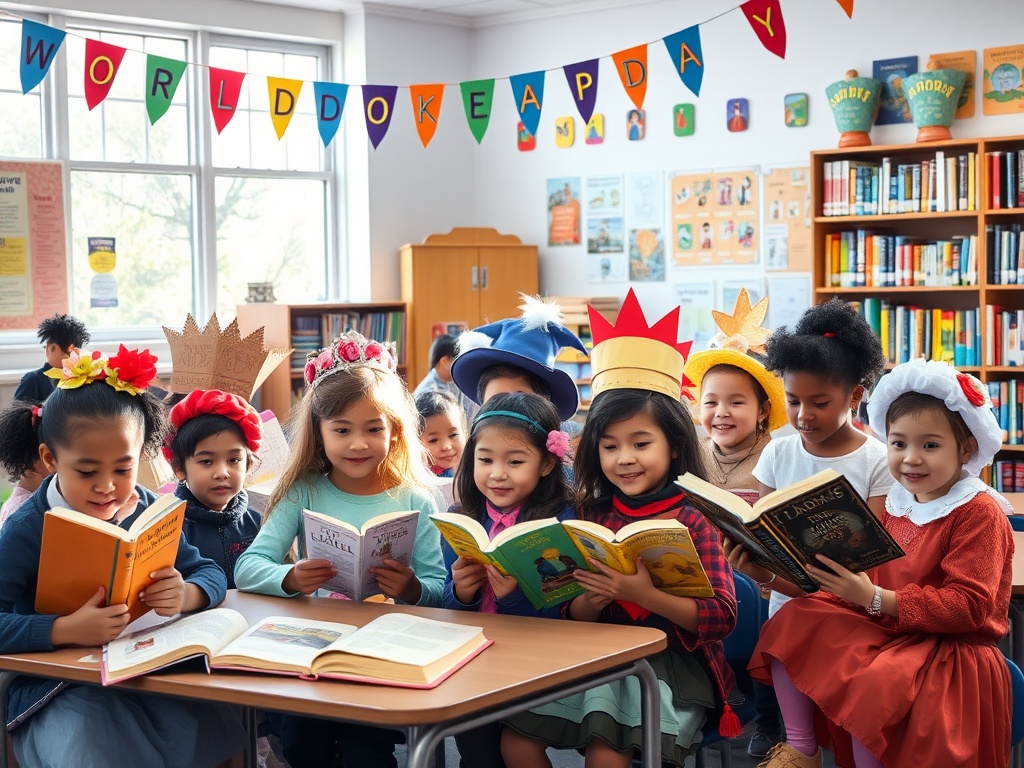Reflections on World Book Day: A Personal Journey

I have always had a fondness for World Book Day. Although my children have outgrown it now, I fully embraced the occasion when they were in primary school. With a creative spirit and a penchant for detail, I took it upon myself to bring their literary characters to life. We transformed into Dorothy from The Wizard of Oz, Nick Carraway from The Great Gatsby, Lucy Van Pelt from Peanuts, and George and Julian from The Famous Five. I even crafted a bizarre alien character from a book my daughter adored, whose title and name escape me now. Despite the confusion among her peers, we made it work. Yet, as I waved my youngest off to his Year 6, and thus his final, World Book Day last year—dressed as Greg Heffley from Diary of a Wimpy Kid—I felt a tremendous sense of relief wash over me. The thought that I would never have to undertake this task again was akin to a ray of sunshine illuminating my weary face.
While I enjoy dressing up—my Halloween planning starts as early as July—World Book Day is undeniably a monumental chore. It seems the awareness around this has grown, with many schools now issuing directives that allow children to celebrate the day in ways that don’t necessitate a costume, perhaps by bringing in a drawing that showcases their favorite story. The World Book Day website has also adjusted its stance, stating that “A favorite fact or illustration from a graphic novel attached to a T-shirt is as good as a full costume.” But is it really? When another child strolls in wearing an impressive Cat in the Hat outfit, who wants to see a disappointed six-year-old?
Indeed, I found joy in World Book Day, but I also recognize that I am a time-rich, middle-class individual with a flair for arts and crafts. For many mothers—because this burden often falls on them—this day becomes yet another exhausting demand from the school, alongside odd-socks day, wear blue for anti-bullying day, or junk modelling day. Primary school-age children are typically ill-equipped to assemble their own costumes or even brainstorm practical ideas (how, for instance, does one dress up as “a Gruffalo fart”?), leaving the task to their mothers, who may not have the capacity to take on such extra work. Personally, you wouldn’t catch me at a PTA meeting or chaperoning a school trip.
Over the years, World Book Day has morphed into more of a mini Harry Potter convention, with at least 16 children in each class arriving in polyester Gryffindor costumes, delivered by Amazon Prime just the day before. This wasn’t the original intention of World Book Day. I’m convinced even J.K. Rowling would agree. The purpose was to celebrate literacy and reading, but it has instead devolved into a burdensome obligation, particularly for mothers, and is now relished mainly by those of us with a knack for costume design.
Moreover, the rhetoric surrounding reading fiction has, in recent times, taken on an overly moralistic slant. Children and teens who immerse themselves in fiction are often praised and deemed “good,” while those who shy away from books are labeled as “missing out” or somehow lacking. I find this perspective troubling. It should be possible for everyone to discover books that resonate with them. Reading fiction, in the grand tapestry of human endeavors, is a relatively modern pastime; the term “novel” itself is a hint. Many intelligent, capable adults find fiction tedious and struggle to grasp its purpose—after all, it’s entirely fabricated. I know a woman who lamented that her son wouldn’t even pick up a Lee Child novel, yet he’s now studying engineering at Oxford. Where is the issue here?
We’ve adopted an overly simplistic view that equates fiction with intelligence, creating a dichotomy that makes children who do not gravitate toward stories feel inadequate. My sister, a math teacher, enjoys solving complex math problems for fun, yet she doesn’t expect me to share her enthusiasm. However, we assume that everyone should revel in reading fiction, with no exceptions. It’s akin to expecting everyone to adore oysters, or engage in cold-water swimming, or solve calculus problems.
World Book Day never explicitly stated that it was strictly about fiction, but the suggestion to dress as a literary character has inevitably tilted it in that direction. This focus has, in turn, alienated many children. While I would hate to see World Book Day fade away, it certainly needs a revamp. One idea could be for children to recommend books to one another—similar to Secret Santa, but with books. Any books, not just narratives. Whatever the future holds, I believe that the costume element needs to be entirely rethought. It was a desperate solution from the outset, but I understand how it might have seemed like a good idea at the time. Ultimately, no amount of Harry Potter costumes can alter the reality that children will either engage with fiction to varying degrees or read required texts begrudgingly as part of their education.




